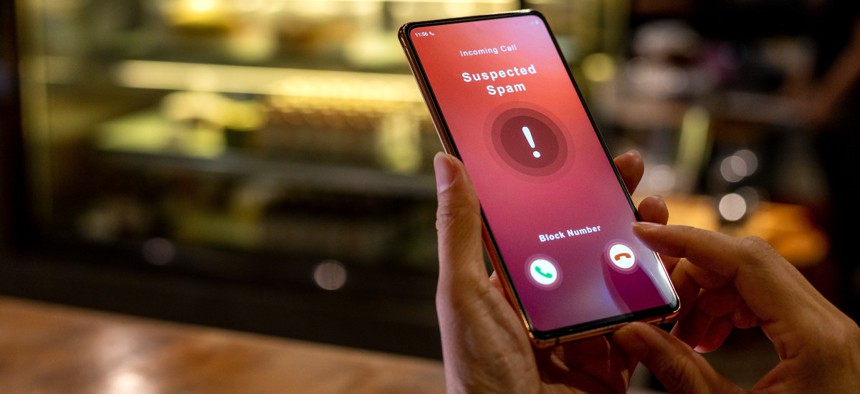FCC Rule for Blocking Overseas Robocalls Receives Approval

Thai Liang Lim/Getty Images
The new requirements are scheduled to go into effect on Dec. 19.
The Office of Management and Budget has signed off on a Federal Communications Commission rule requiring gateway providers to block calls on a “do-not-originate list,” part of the agency’s May report and order designed to block overseas robocalls from reaching U.S. phones, according to a Federal Register notice published on Nov. 18.
The FCC’s rules—adopted on May 19—said, in part, that the new requirements extend “our protections against unlawful robocalls by placing new obligations on the gateway providers that are the entry point for foreign calls into the United States and requiring them to play a more active role in the fight.”
The FCC defines a gateway provider as a “U.S.-based intermediate provider that receives a call directly from a foreign originating provider or foreign intermediate provider at its U.S.-based facilities before transmitting the call downstream to another U.S.-based provider.”
The rules adopted by the FCC cited 2021 data from the Industry Traceback Group, which found that 65% of “voice service providers” identified as transmitting spam calls were either foreign-based or gateway providers.
“Gateway providers serve as a critical choke-point for reducing the number of illegal robocalls received by American consumers,” the FCC said in a May 19 press release. “The new rules require gateway providers to participate in robocall mitigation, including blocking efforts, take responsibility for illegal robocall campaigns on their networks, cooperate with FCC enforcement efforts and quickly respond to efforts to trace illegal robocalls to their source.”
Under the recently approved rule, gateway providers must block calls originating from a number on a “reasonable” do-not-originate list.
According to the FCC’s rules, the do-not-originate list may only include:
- Numbers where the subscriber has asked that calls originating from that number be blocked “because the number is used for inbound calls only.”
- Numbers that are invalid under the North American Numbering Plan, or NANP.
- Valid NANP numbers that are not allocated to providers by the NANP administrator.
- Valid, but unused, NANP numbers allocated to a provider, “so long as the provider blocking the calls is the allocatee of the number and confirms that the number is unused or has obtained verification from the allocatee that the number is unused at the time of blocking.”
The Federal Register notice said that the requirement will go into effect on Dec. 19.






